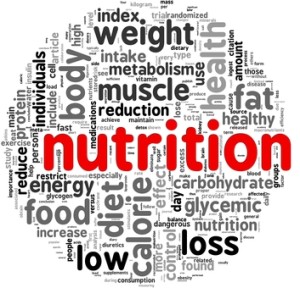 Ever since I stopped eating carbs, I’ve been feeling so much better.
Ever since I stopped eating carbs, I’ve been feeling so much better.
The keto-diet works fine for me. It keeps me from having cookie binges!
I tried giving up carbs and my workouts tanked. I had no energy and felt horrible.
Athletes’ opinions about carbohydrates range from evil to essential. Some anti-carb athletes rave about how great they feel; others complain about weakness and fatigue. Abundant research supports eating a sports diet based on grains, fruits and vegetables—the wholesome kinds of sugars and starches that feed the brain and fuel the muscles during hard exercise. If anti-carb anecdotes leave you wondering what’s best for your sports diet, keep reading.
Why would anyone choose a very low carb ketogenic diet?
In a ketogenic diet, about 70% of the calories are from fat and only 5% from carbohydrate. (Think drinking olive oil and eating lots of butter, not eating lots of protein) This very low carb/moderate protein diet trains the body to burn dietary- and body-fat, and produces ketones (by-products of fat metabolism) that can be used for fuel.
Speaking at the 2016 annual meeting of the Academy of Nutrition & Dietetics (AND), Jeff Volek PhD of The Ohio State University noted that a keto-diet has been used for many years in clinical situations, such as epilepsy to control seizures, obesity to lose weight, and diabetes to control blood sugar. Some athletes are now experimenting with ketosis, as a means to enhance endurance. Even the skinniest of athletes has enough body fat to support many hours of exercise. Eating a keto-diet forces the body to burn more fat. This enables an endurance athlete to consume less fuel (gels, sport drinks, gummi bears, etc.) during exercise and potentially enhance endurance IF the exercise is very low intensity (such as a 24-hour trail run). This also reduces the risk of creating intestinal distress.
An alternate way to improve performance and resolve undesired pit stops is to meet with a sports nutritionist who is a registered dietitian (RD) who can assess your diet, create a winning food strategy, and help you figure out what causes intestinal distress in the first place. You can likely resolve the issue without resorting to a tough-to-maintain keto-diet.
Why do some athletes say they feel better when they stop eating bread, cereal and other grains/carbohydrates?
When athletes rave about how much better they feel after having made any dramatic dietary change (such as cutting out grains), I ask, “What were you eating before you made this change?” Inevitably, the answer is The Standard American Diet (S.A.D.), with skipped meals, abundant fast foods, and more junk-snacks than high-quality meals. No wonder they feel better; they are eating better.
Other reasons for “feeling so much better” after giving up grains might relate to food sensitivities. When you cut out a whole food group, you eliminate a lot of foods. Likely just a few of the foods created feelings of un-wellness. An RD can help you reach the same level of “feeling great” by working with you to figure out which foods contributed to the sensitivity. Maybe cutting back on just onions and garlic could have done the job. Easier than ketosis!
Some athletes who rave about their ketogenic diet see the diet as a way to curb their “addiction” to sugar. A high fat diet curbs hunger, and simultaneously curbs cravings for sweets. An easier way to reduce sugar cravings is to prevent extreme hunger. Despite popular belief, sugar binges are unlikely due to sugar addiction but rather to the physiological effects of hunger. Again, an RD can help athletes resolve cravings for sugar without resorting to ketosis.
 Ketones vs. carbs: What does the sports nutrition science say?
Ketones vs. carbs: What does the sports nutrition science say?
A recent study in elite race walkers showed that a ketogenic diet is associated with the ability to burn very high rates of fat at high exercise intensities (1). However, the downside is that burning fat requires more oxygen. Speaking at the AND conference, exercise physiologist John Hawley PhD, Head of the Centre for Exercise & Nutrition at the Mary MacKillop Institute for Health Research (MMIHR) in Melbourne, Australia, commented that keto-athletes become less efficient and less powerful. They needed more oxygen to move at a given speed. The research indicated a sustained keto-carb diet impaired competitive performance, despite an intensified training program that improved 10-km race-walking performance by about 5% to 7% in the carbohydrate-consuming control group.
Instead of totally eliminating carbs, Hawley and his co-researcher Louise Burke, Head of Sports Nutrition at the Australian Institute of Sport and Chair in Sports Nutrition at MMIHR, suggest athletes limit carbohydrate intake around specific training sessions, so they train with low carbohydrate stores a few times a week to gain a metabolic fat-burning advantage, but still train well-fueled most of the time to support high quality workouts. To train depleted, athletes could, for example, workout hard in the evening, limit their carb intake afterwards (eat chicken and a spinach salad with lots of dressing for dinner), and then train again the next morning on empty. (Note: this is not fun, but it does boost mental toughness!) Training in a carb-depleted state in that second workout triggers beneficial metabolic adaptations that can help improve sports performance.
The Bottom Line
Eliminating carbs eliminates a lot of nutrients that invest in overall good health. It also limits your ability to “eat from the same pot” as your friends and family. It can strain relationships and interfere with quality of life. Yet, each competitive athlete is unique in terms of what works for his or her body and mind. One sports diet does not fit everyone and some say they are content in ketosis.
I cringe when athletes report they have eliminated carbs because they are addicted to sugar or believe that carbs are fattening. If you have a poor relationship with carbs, you want to meet with a sports dietitian who can help you find peace with grains. This professional can help you create a fueling program that you will want to enjoy for the rest of your life.
While ketosis may seem like a fascinating nutritional adventure, in the long run, don’t you think, from time to time, you’ll want to be able to enjoy with your friends some birthday cake and/or beer?
Reprinted with permission from Nancy Clark.
Sports nutritionist Nancy Clark MS RD CSSD has a private practice in the Boston-area (Newton; 617-795-1875), where she helps both fitness exercisers and competitive athletes create winning food plans. Her best-selling Sports Nutrition Guidebook, and food guides for marathoners, cyclists and soccer are available at nancyclarkrd.com. For workshops, see NutritionSportsExerciseCEUs.com.
Reference:
Burke L et al. Low Carbohydrate, High Fat diet impairs exercise economy and negates the performance benefit from intensified training in elite race walkers. J Physiology, Dec 2016 (open access; read at http://ow.ly/aGAh307TFIV)
